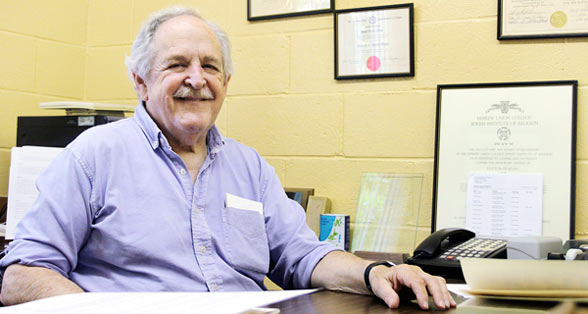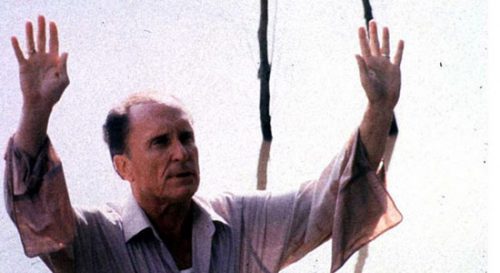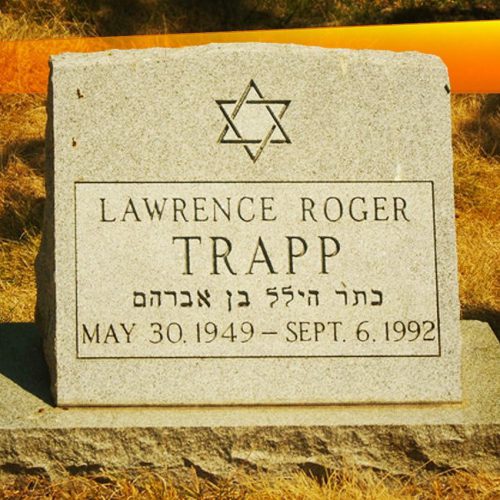

According to the latest findings from Brookings, over half of all American Christians believe that they are being discriminated against. While this is not something I can say I’ve personally experienced, it is certainly an issue worth addressing, as the numbers involved are staggering.
To be honest, I’m not really invested in figuring out why people feel this way, or whether they should or shouldn’t feel this way.
What I am interested in, however, is how American Christians collectively respond to feeling discriminated against. Do we meet vitriol with vitriol? Do we justify ourselves to those who wish to do us harm? Does our human need to feel right find an unhealthy marriage with our pharisaic righteousness? It is worth asking a question we do not often ask on Mbird: What should we do?
Recently the incredible podcast, Snap Judgment, did an entire show of their classics. And in one story, called simply “The Rabbi and the KKK” (embedded below), I caught a powerful glimpse of what I believe may be the only answer to this question of response.
[soundcloud url=”https://api.soundcloud.com/tracks/270692119″ params=”color=2fa1c7&show_artwork=false” width=”100%” height=”166″ iframe=”true” /]
A gentleman named Rabbi Michael Weisser moved from New York City to take a job at a synagogue in Lincoln, Nebraska. Almost immediately he gets an anonymous phone call from a voice that says simply, “You’ll be sorry you ever moved into that house, Jew Boy.” Within a few weeks a package filled with racist material arrived at his house with a business card from the Klu Klux Klan that read, “The KKK is watching you, scum.”
It didn’t take long for Rabbi Weisser to figure out who the perpetrator was. Larry Trapp was notorious in the community as a white supremacist. It is what the Rabbi did next that I found most baffling. He figured that it might be a good idea to reach out to Larry and see if he could get him to talk.
And so every week, right before he taught Bar Mitzvah lessons, Rabbi Weisser would call Larry Trapp and leave him what he called “love notes” on his answering machine. He would call and say things like:
“Larry, there’s a lot of love out there and you’re not getting any of it. What’s wrong with you?”
After several months of the Rabbi calling Larry, Larry finally picked up the phone. Now, I am not certain what you would say if you finally got the person on the phone who has harassed you to the point of death threats, but I can sure as hell tell you, I would not have said what Rabbi Weisser said to Larry.
Larry Trapp: Why are you calling me? You are hassling me!
Rabbi Weisser: I just want to talk to you
Larry Trapp: What do you want to talk about?
Rabbi Weisser: I hear you’re disabled and you might need a ride to the grocery.
Larry Trapp: I’ve got that covered, don’t call me anymore.

But here’s the insane thing: the Rabbi kept calling. Until one Sunday evening, Larry Trapp called Rabbi Weisser back. Larry told the Rabbi he wanted to be done with his life of vitriolic hatred. He asked the Rabbi to come over and to take away all of the white supremacy literature that surrounded him in his home. Larry even told the Rabbi about his childhood history of violence and terror. But mostly, Larry wept and repented because of who he had been. And then he told the Rabbi that he longed to be better.
He and Rabbi Weisser gradually became friends. Which would have been more than enough. For the Rabbi to have loved Larry to the point that Larry loved him back would have been a beautiful story of grace in the face of horror. But that’s not where this one ends.
When Larry began to have kidney failure,the Rabbi’s wife, Julie, suggested that they take him into their home. The same man who had threatened their children, they moved into their daughter’s bedroom. Julie gave up her job in order to take care of Larry Trapp full time.

It was during this time that Larry started talking about becoming a Jew. Rabbi Weisser said he tried to pawn him off on his Christian friends. But Larry kept insisting–and so Larry became a Jew. He lived in their house for nine months before he died which Rabbi Weisser suggested was a kind of “birth cycle” for Larry. He said that when Larry died it felt as though they had lost a member of the family.
While I realize this is a long story to retell, it is such an important one. It rings of 7 times 77, of love over justice, and of abject joy in the face of profound sadness. When I read that over half of all Christians in this country believe that they are discriminated against, I do not ask myself why. Instead, I wonder out of what capacity will we respond? Instead of turning to anger, or investing our lives in politicians who promise to keep us safe, I hope that we will keep calling all of those Larry Trapps who hate us and telling them just how loved they are.
Because the terrible and wonderful thing about Jesus is that he offers us only limitless love and unprecedented forgiveness. He tracks down our telephone numbers and leaves us voicemail after voicemail. He shows up in our lives and gathers all the vestiges of sin and heartache and takes them on himself. And just like the good Rabbi Weisser and his wife Julie did for Larry Trapp, in our deaths, Jesus Christ welcomes us into his home and he calls us his family.

COMMENTS
6 responses to “The Rabbi and the KKK: What We Can Learn”
Leave a Reply













An amazing story, especially with the vitriol in this political season. Thank you for sharing it.
DZ did a great job of weaving this story into his sermon last Sunday: http://www.christchurchcville.org/sermons-series/cleaning-up-naaman/
Just such an incredible story! Thank you Sarah.
Glory glory this was a fantastic story. And Zahl’s sermon “Another Rabbi” (link in comment above) really opened a new vista for me and my wife. Thanks, Sarah!
Yes, the wounded will wound you. The question is, what do you do next? Run? Fight? Or lean in? This remarkable Rabbi leaned in. May God grant us the grace to do the same.